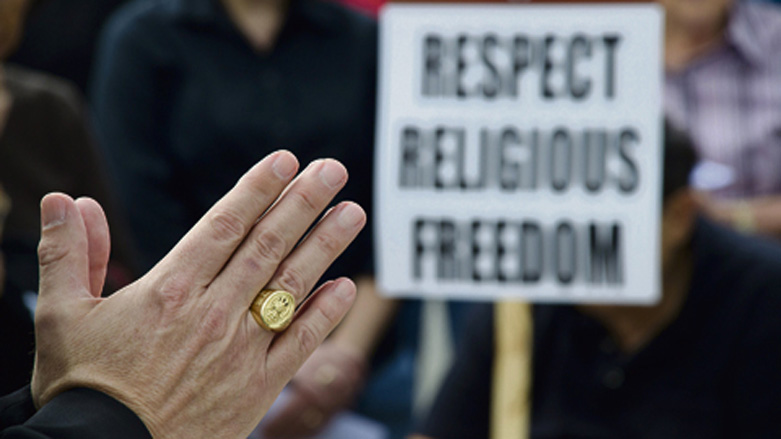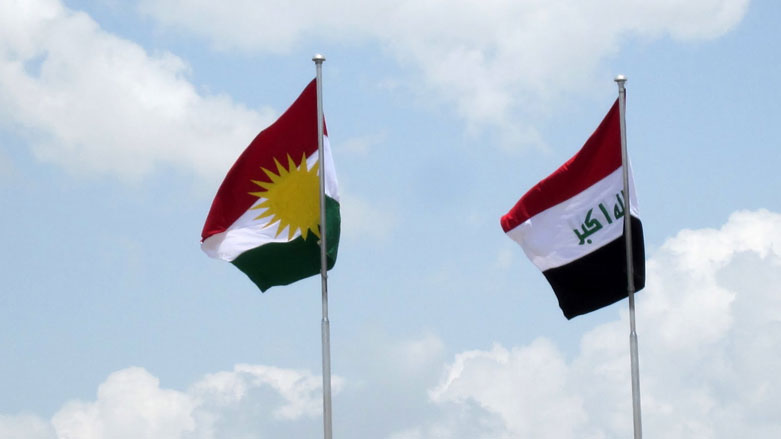Kurdish hospitality amid the Middle East's intolerance

WASHINGTON DC, United States (Kurdistan24) - On Wednesday, the State Department issued its annual report on International Religious Freedom. The report makes clear that the Middle East is sadly lacking in such freedoms and singled out Iran and Saudi Arabia as the worst cases.
Tehran has carried out a large number of death sentences in the name of enforcing religious orthodoxy—substantially more than any other of the 199 countries that the report reviews.
Kurds have figured prominently among those whom the Iranian regime has executed for supposed religious deviation. That includes the public hanging of at least 20 men earlier this month, as Kurdistan24 has reported.
Since 2004, the US has designated Saudi Arabia as a "Country of Particular Concern" for "having engaged in or tolerated particularly severe violations of religious freedom."
All Saudi citizens must be Muslim. Compensation for accidental death or injury differs according to religious affiliation. A Jewish or Christian male receives only 50 percent of the compensation that a Muslim male would receive. All other non-Muslims receive even less: just one-sixteenth.
Widespread, systematic discrimination exists against Shias. Since 2011, over 1,000 have been arrested in the Shia-majority Eastern Province for connections to political protests.
Two men—a Saudi and a Palestinian—received death sentences in 2015, but the regime carried out no such judgments related to religious issues until early 2016 when it executed the Shia cleric Nimr Baqir al-Nimr.
The liberal Saudi blogger, Raif Badawi, was convicted for offenses against Islam. He was sentenced to 10 years in prison and 1,000 lashes in 2014. In January 2015, the regime had him lashed 50 times, before suspending the beatings, perhaps for health reasons.
US diplomats regularly raise their concerns about the lack of religious freedom in the kingdom, and that, too, probably contributes to a degree of Saudi restraint.
Finally, a substantial number of Saudis appear to believe in "sorcery" and "black magic." The responsibilities of the religious police include combating those practices, according to the report.
Deputy Secretary of State Antony Blinken introduced the report upon its public release. Blinken's remarks focused on the Islamic State (IS), which he affirmed was responsible for "genocide against religious communities in areas under its control," including Ezidis, Christians, and Shias.
Blinken also explained that IS has carried out "crimes against humanity and ethnic cleansing" of other religious groups and "in some cases" against Kurds and other ethnic minorities.
The Kurdistan Region hosts two-thirds of the refugees and Internally Displaced Persons (IDPs) in Iraq, many of whom are members of the groups that IS has targeted for genocide. Kurdistan24 asked the State Department for its assessment of the role that Kurds have played in promoting religious tolerance in this complex region.
A State Department Spokesperson responded by explaining that while the report does not make judgments, "We express our appreciation for the Kurdistan Regional Government's (KRG's) current and future humanitarian support and respect for human rights of members of the diverse communities displaced by Da'esh (IS)", as well as "those still residing in their historic ancestral homelands of the Nineveh plains."
The Spokesperson also noted that we "welcomed the KRG as a part of the Government of Iraq delegation, in the recent Conference on Threats to Religious and Ethnic Minorities under Da'esh in Washington DC."
The Office of International Religious Freedom (IRF) within the State Department's Bureau of Democracy, Human Rights and Labor hosted that conference, which was attended by over 20 countries. The same office also produces the annual religious freedom reports.
Amb. David Saperstein is Ambassador-at-Large for International Religious Freedom and heads that office. Earlier this month, Saperstein spoke to Kurdistan24. He was even more effusive in his praise of the Kurds, people as well as their government, concerning the welcome that they have given to those groups who have been the victims of IS' genocidal assaults.
Saperstein applauded the "hospitality and openness of Kurdistan," calling it "extraordinary." He added, "The generous spirit of heart and resources that is expended in welcoming these communities really is an example for countries across the globe."
The ambassador also noted that the upcoming offensive to liberate Mosul from IS is likely to create half a million new refugees. "Kurdistan has taken the lead, working with the international community to begin to prepare three major camps" for them, he stated.
And he concluded, "Kurdistan needs more support from the international community. Iraq needs more support from the international community."
Editing by Delovan Barwari

